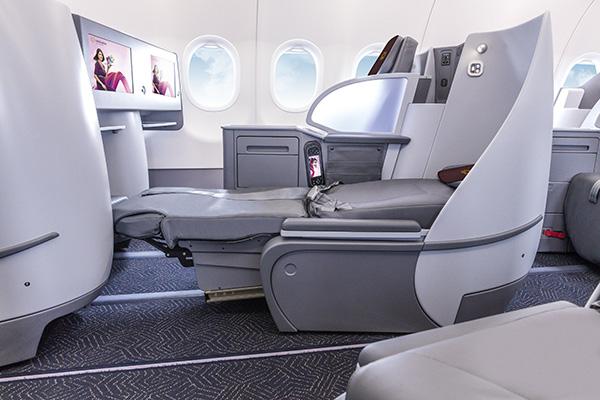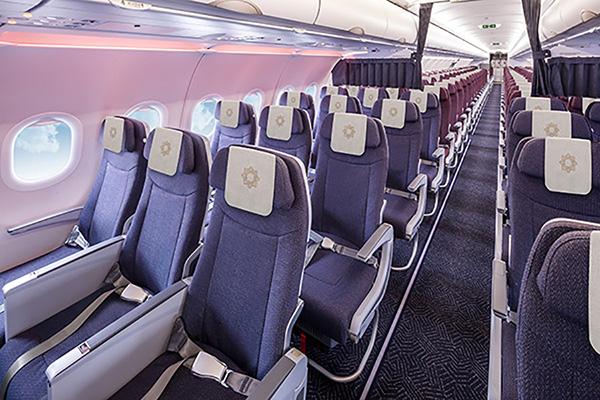
India’s Vistara received its first Airbus A321neo, which will be used on short- to medium-haul international routes or destinations within seven hours of flying time.
The aircraft, which was delivered July 24, is part of the order of 50 from the Airbus A320 family signed in 2018. The airline said the type makes Vistara the first airline in South Asia to offer lie-flat beds on a narrowbody aircraft.
The Gurgaon-based carrier is a joint venture between Tata Sons and Singapore Airlines.
Vistara CEO Mr. Leslie Thng said: “This new addition to our fleet reinforces our long-term commitment to international expansion plans, despite the challenges of the current times. The new cabin products on our A321neo aircraft truly complement our promise of providing a premium and world-class flying experience to travelers from and to India.”
The aircraft features a three-class cabin configuration, with a total of 188 seats, manufactured by Collins Aerospace: 12 in business, 24 in premium economy and 152 in economy class.
According to Vistara, all seats feature four-way adjustable headrests and movable armrests, as well as seatback entertainment and in-seat power/USB charging ports. The airline’s Panasonic eX1 IFE system features a content-rich multimedia library that total up to 700 hours of content, a superior map experience with 3D-flight path map and flight tracker.
The aircraft is also equipped with wireless connectivity, which will allow passengers to access the internet through onboard Wi-Fi, 3G mobile data through GSM and GPRS for SMS and MMS services, subject to necessary regulatory approvals.

Vistara’s A321neo business class seats are in a 2-2 configuration with a seat pitch of 63 inches. They come with 16-inch high definition touchscreen in-seat TV, a video handset to navigate the IFE system and generous stowage space.
The premium economy seats are in a 3-3 configuration with a seat pitch of 33 inches. The economy class seats are in a 3-3 configuration with a seat pitch of 28-29 inches.
“The A321neo aircraft ensures operational enhancement, cost effectiveness as well as reduction of carbon footprint for us while enabling extra payload capacity, greater fuel efficiency and higher range. All of these aspects perfectly align with our international growth strategy,” Mr. Thng added.
